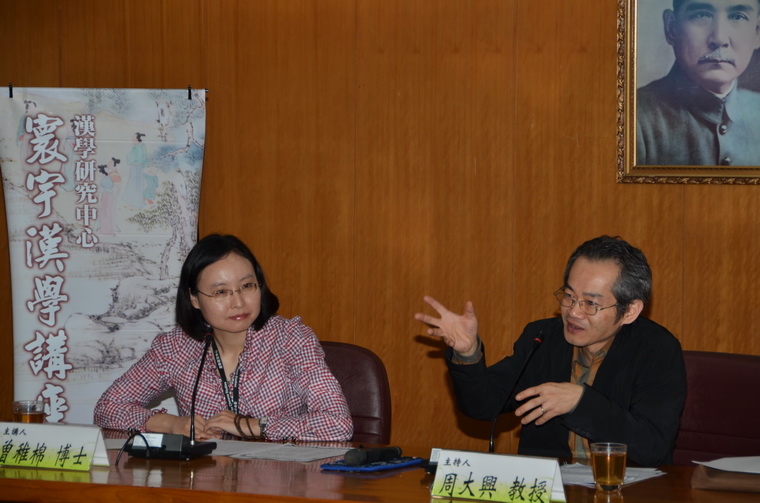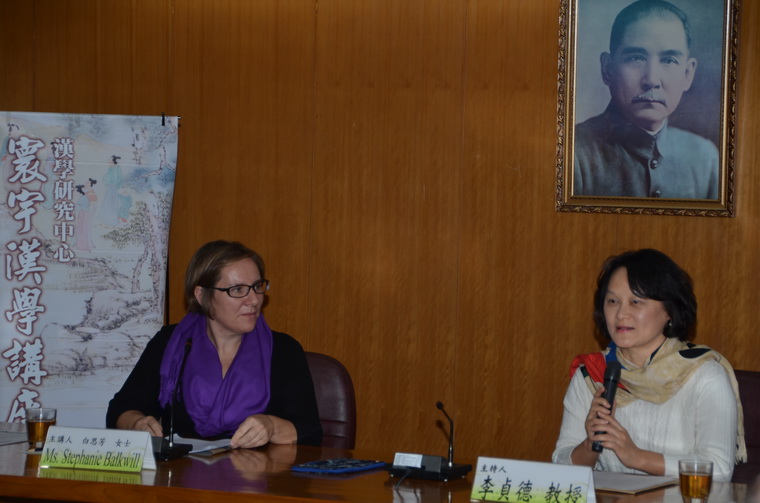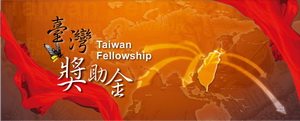On December 10, 2014, the Center for Chinese Studies held two lectures in the Global Chinese Studies series. Two CCS grant recipients visiting the Center were invited to present the research they had carried out in Taiwan: C. M. Adrian Tseng and Stephanie Balkwill of McMaster University’s Department of Religious Studies, Canada.
C. M. Adrian Tseng began proceedings with his presentation entitled “A Comparison of Buddha Nature and Dao Nature in Medieval Chinese Buddhism,” with Chow Ta-hsing, an associate research fellow of the Institute of Chinese Literature and Philosophy, Academia Sinica moderating. The theme of the talk was the Sui dynasty monk Jizang’s (549-623) theory that “plants and trees possess Buddha nature,” expounded in his work Treatise on the Mystery of the Mahayana. Jizang was perhaps the first Chinese Buddhist monk to explicitly propose this idea. The Buddha nature of plants and trees he advocates uses Neo-Daoist ideas to reinterpret the relationship between Buddha nature, living things, and inanimate objects, and marks a change in East Asian Buddhist ideas about Buddha nature. This paved the way for Tang dynasty Chan and Tiantai patriarch Zhanran (711-782), and further developed ideas about fundamental enlightenment in Japanese Buddhism. Mr. Tseng argued that Jizang’s theory blends late Mahayana Buddhism and Neo-Daoism to produce a new Chinese Buddhist thought, and also explored common ground in Neo-Daoist thought, Dao nature and Buddha nature, epistemology and ontology.
The second presentation was given by Stephanie Balkwill and moderated by Lee Jen-der, a research fellow of the Academia Sinica Institute of History and Philology. In her talk, entitled “The Three Jewels and the Three Followings: The Lives of Nuns in the Northern Wei,” Ms. Balkwill discussed the role played by religion and traditional Confucianism in the lives of four Northern Wei dynasty Bikkhunis by analyzing their tomb inscriptions. In Northern Wei dynasty Luoyang, most nunneries were located near the palace. One of the nuns began her monastic life in a nunnery opposite the palace. Records show that the nuns in this nunnery all came from the Northern Wei court. Ms. Balkwill argued that Northern Wei women were in fact able to embrace two simultaneous identities as mothers and bikkhunis; they did not necessarily leave home and maintained close contact with their families

Dr. Adrian Tseng and Prof. Chow Ta-hsing

Ms. Stephanie Balkwill and Prof. Lee Jen-der










